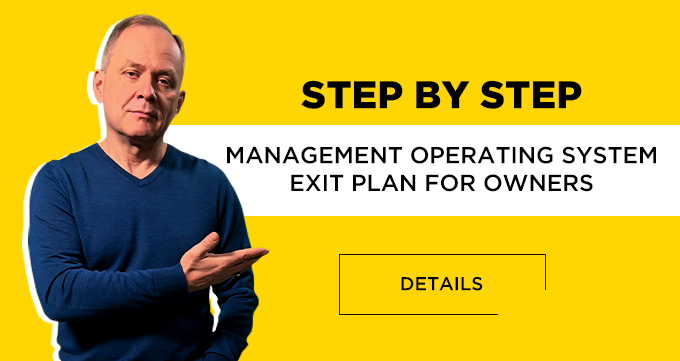4 mistakes that prevent a business owner from building a strong company
When I work with entrepreneurs, I often see the same mistakes. Even those who have already reached a stable revenue level fall into these traps. These mistakes slow down growth, burn out the owner, and block the creation of a truly strong and scalable company. Here are the four most common ones.
1. Everything depends on the owner
I understand those who went from being an expert to running a business. If you’re the one selling, controlling the product, managing processes — it’s hard to believe anyone else can do it better. So you handle the deals, control the marketing, and run the operations personally.
The result? The company stops being a business and turns into a craft dependent on one person. You leave for a month — everything stalls. Revenue drops, clients complain, the team freezes. That’s the trap of manual management.
The solution is delegation. You need clear processes, a team that functions without your daily involvement, and a structure that allows you to step back. Only then can the business scale.
2. Building a team “by leftovers”
Once revenue appears, the natural step is to expand the team. But many make the mistake of hiring those who are cheaper, easier to manage, or just familiar.
The team ends up being made not of professionals, but whoever was available. Tasks pile up, quality drops, clients leave. Fixing mistakes from poor hires costs more than investing in the right people from the start.
Hiring isn’t about saving — it’s about building capacity for growth. If you want a systems-based business, rethink how you recruit. You need strong, independent team players.
3. Working with relatives and friends
At the beginning, it seems convenient to work with people you trust. There’s loyalty, shared vision, ease of communication. But reality kicks in: personal relationships interfere with business decisions. Where firm leadership is needed — emotions take over. Where logic is needed — compromise happens.
The team sees it instantly. If key positions are filled by relatives, the message is clear: there’s no growth path. Only “insiders” get promoted. Professionals don’t stay in this kind of environment.
If you do start a business with family or friends, clearly define responsibilities, decision-making rules, and performance metrics. Otherwise, it becomes a closed family project with limited potential.
4. Revenue growth instead of building the system
Of course, the business must generate revenue. But if the only focus is making more money, with no investment into the system — growth will eventually stall.
“Sell more” is a common goal. But where will the money go? Into automation? Marketing? Strengthening the team? Or back into covering everyday expenses?
Without reinvesting in systems, processes, and structure — the business goes in circles. Revenue rises, but the system breaks. The team burns out, quality suffers, and the owner is stretched thin.
To move to the next level, you need balance: profit and structure. Strategy — not survival mode.
How to fix it
These mistakes are common: a business tied to the owner, compromised hiring, personal dynamics in leadership, and chasing revenue instead of structure. But all of this can be changed.
A business is a system. If it’s built right — it works without you. If not — it drains your energy, blocks scaling, and keeps you trapped in operations.
I explain how to fix this at my free masterclass: “How to Strengthen the Team, Build a Business Foundation, and Scale Without Burning Out.” You’ll get a step-by-step framework, templates, and tools to solve these 4 key challenges and move forward. Register here: https://go.bbooster.online/com3.

